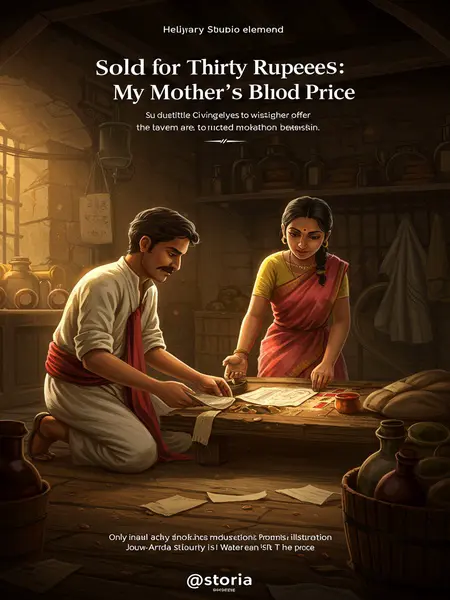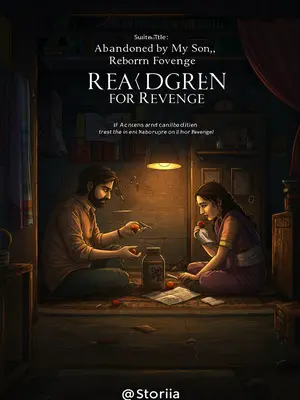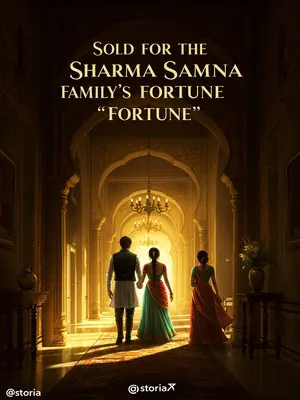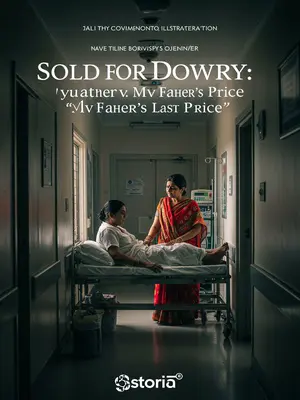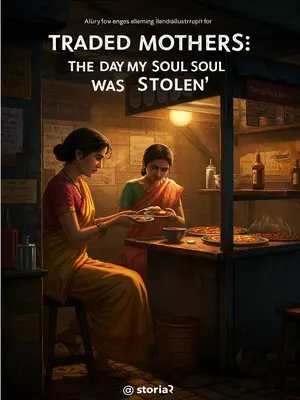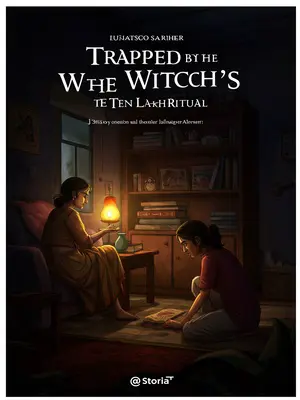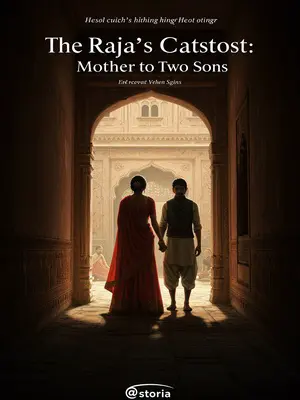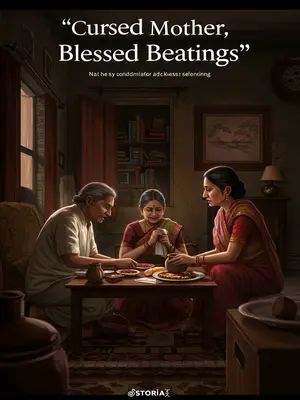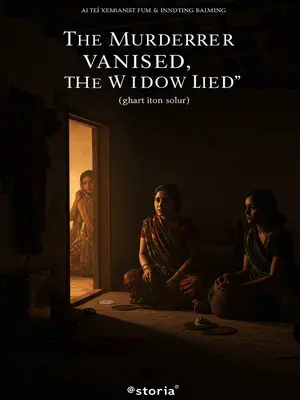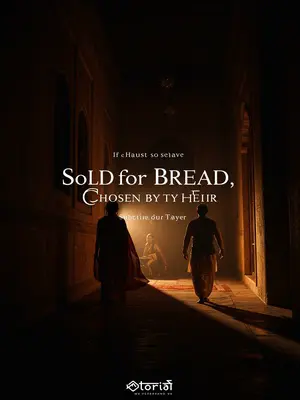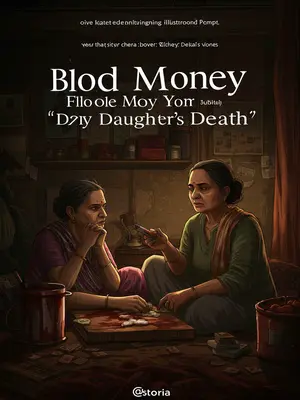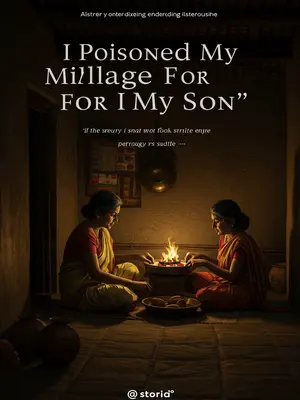Chapter 1: Stolen in the Heat of July
On a sweltering July morning in 1994, in a forgotten corner of Chhattisgarh, a human trafficker slit Meena Singh’s throat—her two sons watching, too shocked to scream.
The heat that July pressed down like hot dal, clinging to the skin and filling every lane with a sleepy haze. The slow whir of ceiling fans in every home mixed with the distant call of the sabziwala, creating a lazy rhythm that hid the sharp edge of fear. In Kaveripur, stories like this weren’t whispered in every house, but the dread that children might vanish never left a mother’s heart. The memory of what happened at Meena Singh’s house would stain the village for years to come.
But above all, it was the elder brother—Amit—who carried every moment with him, seared into his soul.
He remembered it all: his mother’s scream slicing through the air, the terror frozen on Kunal’s face, the metallic taste of blood thick in the air. Even as he grew older, those memories stalked him at night, waking him with sweat on his brow and his heart pounding like a dhol.
Eighteen years later, he returned.
The news ran through the village like a jolt of electricity. Neighbours crowded in narrow gullies, hands pressed to cheeks, lips buzzing with gossip. Chaiwalas poured extra-strong tea, whispering, “Arrey, after so many years? He’s back, just like that?”
12 July 1994, Rajpur Town, Kaveripur District.
It was market day, and most women from Kaveripur Village had gone to the bazaar, their bangles jangling, children tagging along, eyes wide at the promise of sweets.
The bazaar pulsed with life—vendors shouted prices, the clatter of glass bangles mixed with cries of “Le lo, le lo!” Children darted between cows and cycle rickshaws. The air was thick with the smell of frying pakoras, ripe mangoes, and the sharp tang of cow dung baking on the road. Every sight and sound gave Rajpur its flavour, but also covered dangers hiding in plain sight.
Thirty-one-year-old Meena Singh was there among the crowd.
Her sari, though faded, was pleated with care. She clutched her purse close, determined not to let her rupees slip away. There was a gentle spark in her eyes—maybe she’d find something small for her family, maybe just a gossip at the genda flower stall.
She wanted to buy a new shirt for Ramesh Singh, her children’s father, so she counted out thirty rupees at home, tucking the notes securely inside her blouse after praying softly to Lakshmi for good luck.
Before leaving, she stopped at her neighbour’s, laughing about her broken slippers. She borrowed a pair of white plastic chappals from Aunty Sushila, who teased, “Bas sambhal ke pehenna, beta, don’t let those boys run away with them!” Meena smiled, the chappals biting her heels, but better than burning her feet on the dusty road.
But in those few moments, her sons caught up to her.
Seven-year-old Amit and four-year-old Kunal appeared, hair plastered to their foreheads with sweat, faces beaming. Kunal clung to a rag like treasure; Amit’s eyes sparkled with the hope of a jalebi if he behaved.
Spotting their mother, they pleaded to come along.
“Please na, Aai, ekdum shaant rahenge, pakka!” Amit begged, tugging her pallu. Kunal hugged her leg, looking up with eyes full of watery hope.
Meena tried to shoo them away, but seeing their bare feet, her heart softened.
She bent down, thumb brushing the dust from Kunal’s cheek, sighing, “Accha, chalo, lekin shaitani nahi.” No mother could refuse such faces.
The three of them set out, laughter and chatter bubbling between them.
Amit pointed at clouds shaped like elephants, Meena teased him about his missing tooth, and Kunal skipped along, collecting pebbles. Every now and then the local bus would roar by, making them jump, Meena’s grip tightening protectively on their hands until they reached the market’s edge.
But disaster waited for them in the town.
Suddenly, the market’s noise seemed to hush, as if the world itself was holding its breath for what would happen next.
A short, round man called out as they passed, his old shirt stained with sweat, a gold chain glinting at his throat—just the sort to blend in as anyone’s distant uncle. “O Meena behen, suno zara!” he called, his voice syrupy but sharp.
He spoke in their dialect, claiming kinship, asking her to pass a message to a relative in her village. His words rolled out with practiced ease, as though he’d done this a hundred times.
Back then, there were no mobiles, and landlines were rare in cities, unheard of in villages. So messages travelled by mouth, from one villager to another—if someone’s son got a job in Bilaspur, or a daughter’s marriage was fixed, the whole gaon would know by evening.
Meena, ever kind, didn’t refuse and followed Puran Lal, the man, into his shop.
She hesitated just a moment, but kindness won over caution. “Chalo, sun lete hain, kaunse kaam ki baat hai,” she thought, telling the boys to wait outside. The doorbell jingled as she went in.
Outside, Amit and Kunal perched on a plastic stool, obedient and silent.
The stool squeaked under them. Kunal swung his legs, humming an old filmy tune, while Amit peered inside, already thinking of samosas and maybe, if luck favoured, a barfi.
The shop looked like a carrom room, carrom boards and a ludo set scattered about.
It smelled of cheap incense, stale chai, and the sourness of sweat and old coins. Older boys flicked coins, shouting, “Queen pocketed!” while a transistor played a scratchy Kishore Kumar tune.
Soon, the card-players drifted out.
The sound of coins and laughter faded, replaced by a heavy silence. Even a child could sense that something was wrong.
But Meena still didn’t come out.
Minutes crawled by. Amit’s foot tapped anxiously; Kunal stopped humming, lips trembling.
Growing uneasy, Amit led his brother inside to look for their mother.
The door creaked. Amit’s heart hammered in his chest. “Ma?” he whispered, peering into the shadows.
Inside, they stumbled into a nightmare.
Their mother lay sprawled on the floor, sari soaked in blood. One man gripped a knife, crimson dripping from his hand. Another wiped his palms on a gamchha, while a third glared at the boys with wild, angry eyes.
Amit’s knees buckled. He tasted bile in his mouth. Kunal’s scream was so sharp, even the crows outside fell silent.
Amit’s voice failed him, his body frozen with terror. Kunal clung to his hand, shrieking, nails digging deep.
The men snarled, “Saale, ab kaise bachoge?” and lunged for them. The brothers shrank back, panic thick in the air, heavier than incense smoke.
After checking Meena’s pulse and finding her gone, the men seized Amit and Kunal and hurled them into the basement.
Rough hands yanked their arms. Kunal sobbed, feet kicking, face streaked with tears and snot. Amit thrashed, but the men were strong. The iron door slammed shut behind them, its clang echoing like a curse.
The basement was damp and cold. They clung together, shivering, as the lock snapped shut above them.
It smelled of mould, old engine oil, and something dead. Water dripped in the darkness, spiderwebs dusted every corner. Amit wiped Kunal’s face with his own shirt. He pressed his cheek to Kunal’s hair, whispering the Gayatri mantra under his breath, hoping some god was listening.
After their tears dried, they sat in silence, listening to their own breathing and the faint thump of footsteps above. Amit held Kunal close, mind racing, desperate for a way out.
All they could think of was escape.
Amit replayed stories he’d heard from older boys—how to slip through small windows, how to hide from angry men. He wiped his nose, scanning the dark for anything that could help.
He found a small, glassless window high above the door. Sunlight filtered in, glinting on dust motes. It was high for children, but not impossible.
Amit spotted a long wooden stick. He whispered, “Tu sambhal ke, main upar jaake dekhunga.” Together, they braced the stick, climbing with trembling hands. “Arre, dhyaan se!” Amit hissed as Kunal slipped.
Amit, nimble from climbing mango trees at home, managed to scramble out the window, ignoring the pain in his shins.
He peered out, scanning for danger. But Kunal was too small—each time he tried, he slipped and fell, whimpering, “Dada, mujhe darr lag raha hai.”
Once, the brothers made it as far as the outer wall of the backyard.
Amit boosted Kunal up, the rough plaster scraping their skin. The freedom they craved was so close, they could almost taste it.
But an old chowkidar spotted them, eyes narrowing. “Oye, kahan ja rahe ho!” he barked, stick thumping the ground.
The brothers were dragged back by the ear, knees scraped, faces streaked with dirt. The men exchanged glances. One spat paan on the floor. Only then did the stick come down.
The beating was swift and brutal. Amit saw sparks, Kunal wailed. “Ab fir se bhagoge, haan?” one man spat, slamming the door. That night, their bodies ached with fresh bruises.
For seven endless days, they stayed imprisoned.
Seven nights, counting cracks in the wall, whispering stories to chase away the cold. Each day, hope faded.
The men laced their food with sleeping pills to keep them from trying again.
The dry roti tasted of nothing, but hunger made them eat. Soon their eyelids drooped, sleep dragging them under, dreams thick with fear.
After a week, worried about trouble, the traffickers moved them at night.
Rough hands shook them awake, the smell of kerosene lamps and whispered curses filling the air. Outside, only the stray dogs and a distant goods train kept watch.
Amit sobered up as the truck bumped along.
He pressed his face to the barred window, the memory of his mother’s murder looping in his mind. Now, survival was all that mattered.
Now he knew for certain: these were human traffickers.
His hands curled into fists. "Yeh log bikayenge humein, bas," he thought, jaw set. He couldn’t trust anyone.
To sell him and his brother, they’d killed his mother together.
That truth burned like fever. Amit wanted to scream, but forced himself to stay silent. "Abhi chup rehna hi behtar hai," he told himself.
Hatred simmered, but the beatings had taught him caution.
He hugged Kunal tightly, whispering, "Tu hai na mere saath, bas isi ki fikar hai."
Staying alive was all that mattered now.
He learned quickly: no heroics, no talking back. Only when the men weren’t watching did he let himself hope.
Amit memorised every detail of the journey—milestones, power lines, the shapes of trees, telling himself, "Kabhi mauka mile toh yahan se nikal jaoonga."
He remembered crossing a highway, then a deserted path to a small, nameless station. The paint peeled from signboards, the tea stall shuttered. The men hustled them through, glancing over their shoulders.
The brothers were shoved into a sealed train carriage. The compartment smelled of coal and rust. Every jolt made Kunal whimper in his sleep. Amit stayed awake, counting the stops.
By some unknown means, the traffickers took them to Delhi.
The city was a blur—noise, lights, strangers everywhere. Amit clutched Kunal’s hand, terrified of being swallowed by the crowd.
Two other abducted children joined them—a girl of five, a boy in a torn shirt. Their eyes were flat, cheeks streaked with dried tears. Amit felt a sick kinship.
One child fussed and cried on the train, so two traffickers carried him into the restroom.
Their voices were low, sharp. Amit’s stomach turned cold, like the first rainwater on a hot stone.
When the men returned, their hands were empty. The child was gone.
No one dared ask. Kunal buried his face in Amit’s shoulder, silent now—the lesson clear.
Amit wished he didn’t understand, but he did. He squeezed Kunal’s hand, promising silently, "Yeh galti humse nahi hogi."
He whispered, "Dekh, Kunal, chup rehna hai. Jo bolein, woh hi karna hai." Kunal nodded, wide-eyed, innocence slipping away.
Every sound became a threat. Amit stopped looking anyone in the eye, learned to become invisible.
From then on, the brothers did whatever they were told, never resisting.
Obedience was their only protection. Even when hunger gnawed or legs trembled, they followed every order.
But as they went farther from home, their fear grew.
Every new city, every strange language, made them feel smaller, more lost. The idea of being found seemed impossible—like a story from another world.
